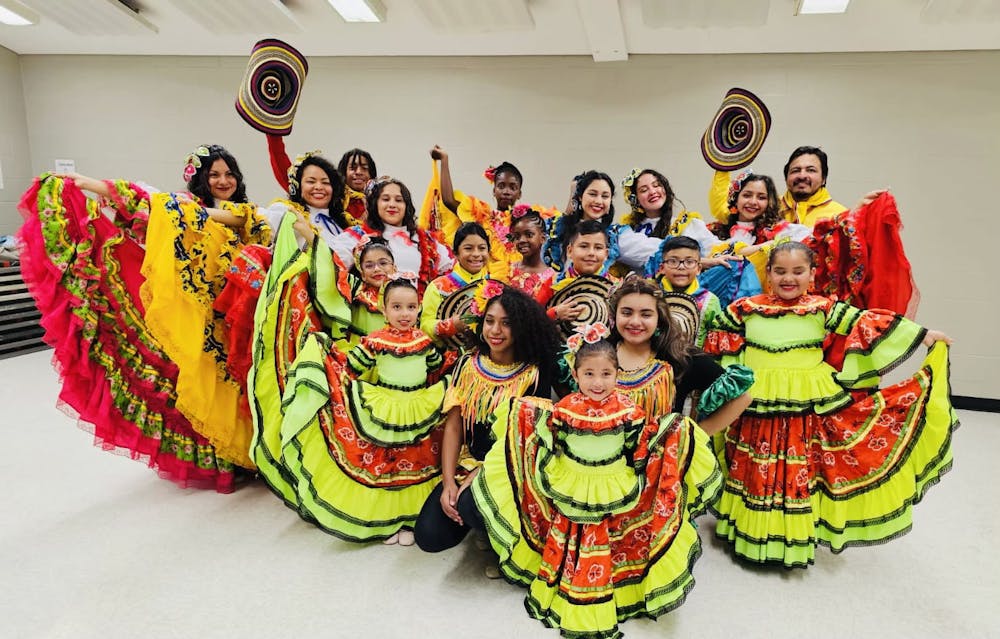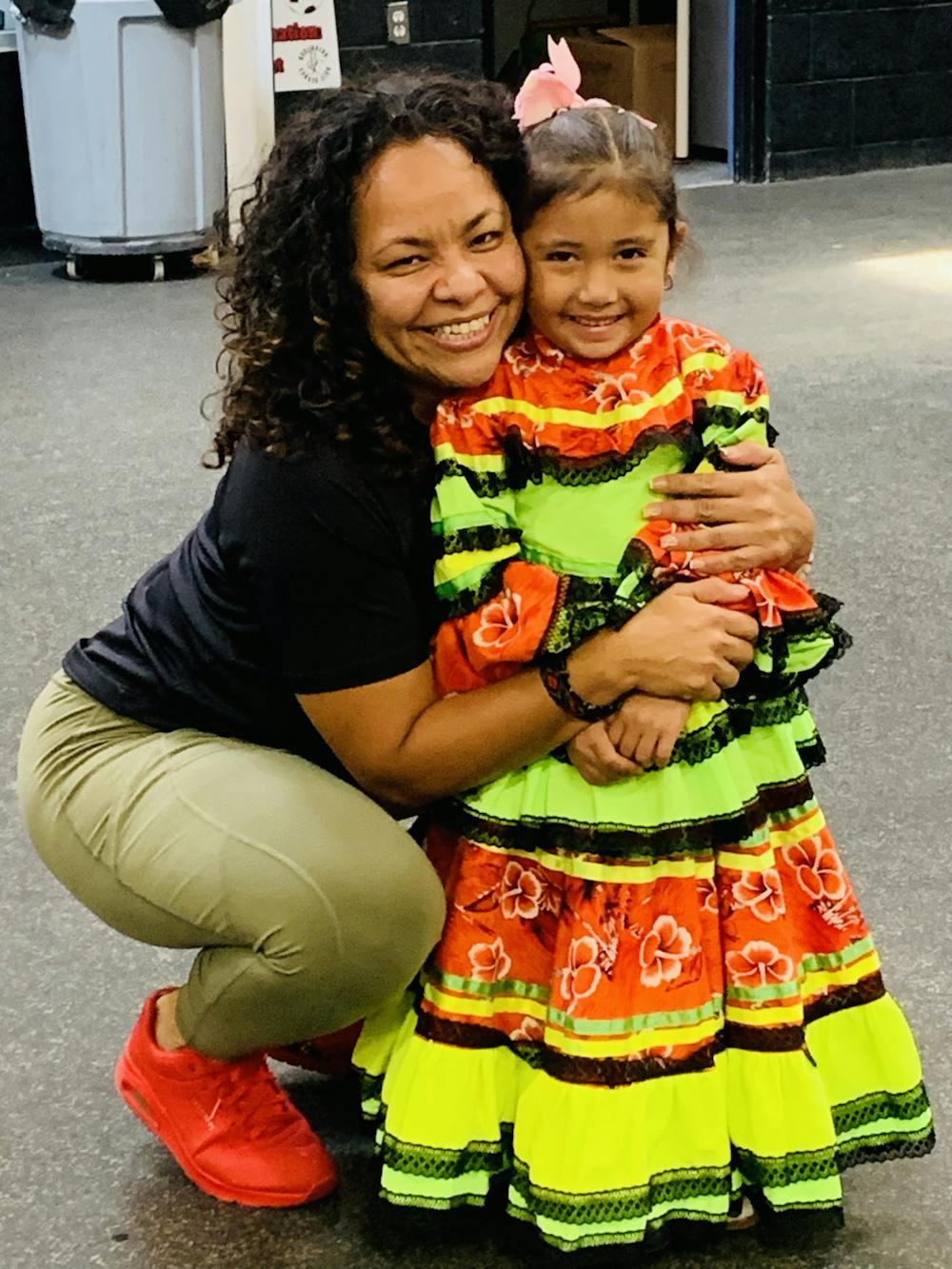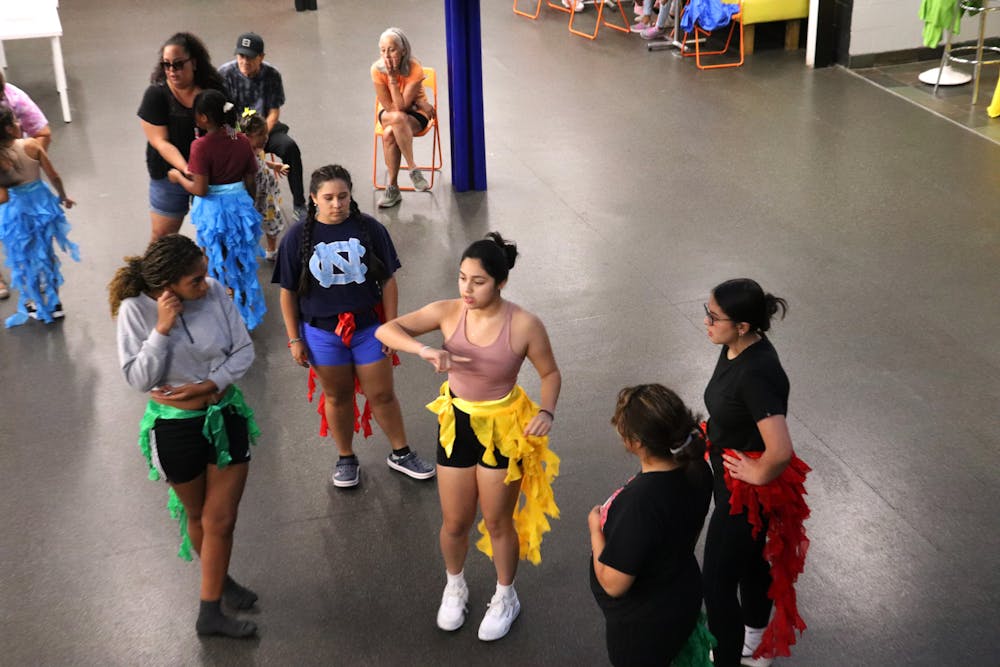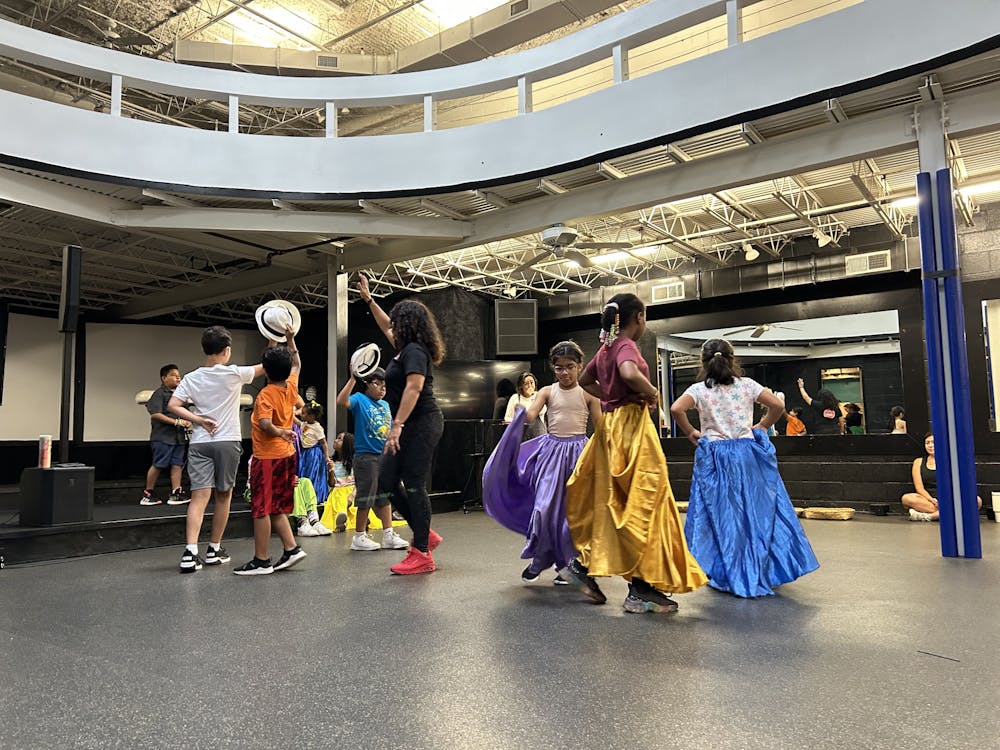Yholima Vargas, born in Bógota, Colombia, has danced since she was young and found safety and self-expression through traditional Colombian dance while living in Montreal, Durham and Burlington. She said as she dances, she yells the Colombian expression “Huepa!” — a declaration of exhilaration.
“Performing arts has done amazing things for me,” Vargas said. “It has been my life companion. Wherever I go, dancing has been an amazing place to be. It allows me to feel comfortable in my own environment but also to tell people that it’s OK to be yourself.”
Vargas founded a Colombian dance academy in 2002 when she lived in Montreal. When she moved to North Carolina in 2015, she founded Huepa! Culture and Arts Institute the same year, a dance academy that promotes Colombian performing arts and cultural identity through the CityGate Dream Center in Burlington.

Huepa dancers pose before a recital. Huepa performs traditional Afro-Colombian and other Colombian dances, but is open to people of all backgrounds according to Yholima Vargas, the founder of the dance academy. Photo courtesy of Yholima Vargas.
“The name ‘Huepa!’ was created because in Colombia, when we dance, we say ‘Huepa!’ It’s a word of expressing life and happiness and joy,” Vargas said. “I always say ‘Huepa’ when I’m performing, so I felt like it was the perfect name.”
Vargas moved from Santa Marta, Colombia to Montreal at the age of 19 and said she found herself struggling to feel at home but found solace in traditional Colombian dance.
“I was having a hard time integrating into a new country. I was so young, but dancing was the only thing I remember really staying with me,” Vargas said. “When I started dancing by myself, I realized that many people needed some type of refuge; they needed a refuge to find themselves.”
Huepa! Culture and Arts Institute was founded in partnership with Burlington’s CityGate Dream Center, which offers programs and events serving the Alamance County Hispanic and Latinx community.

Vargas said dance has been an important part of her life for as long as she can remember.
“Cultural identity was very important to me, and it still is to this day,” Vargas said. “I grew up dancing traditional music until I was a teenager, through high school and even in college.”
Vargas works as a social worker and English as a second language coordinator at Alamance Community College. She also hosts diversity, equity and inclusion workshops for local public school staff and law enforcement officers. She said it is important to highlight the Hispanic community both now and outside of Hispanic Heritage Month.
“It's all about promoting the interests of the Hispanic community as one more that needs to be promoted, but not the only one, without taking away the importance of any other culture,” Vargas said.
She said dance is one of the best ways to introduce people to a more accessible aspect of Hispanic culture.
“Performing arts is an amazing way to connect people, to allow them to find themselves in a safe space,” Vargas said. “It’s very fun, but it’s also about educating people that don’t know much about the culture.”
Though Huepa! teaches mainly traditional Afro-Colombian dance, Vargas said dancers from all backgrounds are welcome.
“That’s the beauty of it — it’s all about promoting diversity and inclusion,” she said.
Gina Camacho, whose 9-year-old daughter Gracie dances with Huepa!, said she found out about the group through Gracie’s cousin, who has danced with Huepa! for the past three years.
“We went to see her cousin perform, and she was like, ‘I want to do it,’” Gina said. “She caught right on, and she loves it. That's our Saturday thing.”

Yholima Vargas poses with an elementary-aged Huepa dancer. Huepa performs traditional Afro-Colombian dances and has dancers who range in age from 2 to 57. Photo courtesy of Yholima Vargas.
Gracie has been dancing for two years — since she was 7 years old — and Gina said Huepa! has helped Gracie become more comfortable in her own skin.
“She’s grown so much more confident,” Gina said. “Because of Huepa!, she has opened up more to singing and performing in front of a big crowd, which is not easy to do.”
Gracie said dancing with Huepa! has helped her overcome her fear of performing.
“It’s helped me with my nervousness,” Gracie said.
Gina said that Gracie sang at her aunt’s wedding in early September — her first solo performance.
Gina said Huepa! has formed a home for the Hispanic community.
“It’s wonderful. People get together from different countries,” she said. “We’re Mexican but we dance Colombian. We love Colombia and hope to visit one day. The Dream Center has really brought the community together.”
Gina said Huepa! should be promoted within the Alamance community.
“Not a lot of people know about Huepa!” she said. “Anybody can join Huepa! It doesn’t have to be a Hispanic thing. Anybody who’s interested and wants to dance, have fun and enjoy it, this will be the place.”
Mía Pinzón said she has lived in Burlington her whole life, but only joined Huepa! two years ago.

Mía Pinzón instructs Huepa teen dancers during a rehearsal Sept. 9.
Pinzón said she loves Huepa! and has formed close friendships with her fellow dancers.
“When we all get together, it's like my second family,” Pinzón said.
She said the traditional style of Colombian dance is different from American styles of dance.
“Dancing is a story, the story of where we’re from,” Pinzón said. “I think people should be exposed to that.”
Pinzón said the skirts the Huepa! dancers wear during performance can be hard to move in.
“Since the dresses are big, we have to exaggerate our movements so our movements are visible,” Pinzón said.
The Huepa! dancers range in age from 2 to 57 years old, and Vargas said all are welcome, regardless of ethnic background. She said her academy encourages cultural diversity and confidence in origin.
“It’s all about promoting that potential,” Vargas said. “I belong. Who I am and where I come from matters.”


